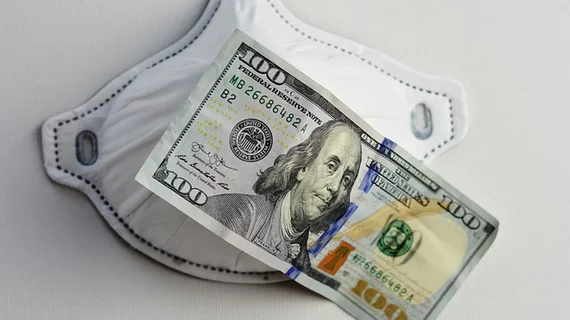HHS allocates over $4B in relief to hospitals hit hard by the pandemic
The U.S. Department of Health and Human Services is releasing nearly $3 billion in funds from the CARES Act for safety-net hospitals serving regions hit hard by the pandemic.
HHS Secretary Alex Azar said he expects to distribute $3 billion in funding across 215 acute care facilities, placing the total payments for safety-net hospitals from the Provider Relief Fund at $12.8 billion, spread across 959 institutions.
"We've been distributing the Provider Relief Funds as quickly as possible to those providers who have been hardest hit by the pandemic," Azar said in a Friday statement. "President Trump is supporting hospitals in continuing to provide COVID-19 care and returning to everyday procedures, especially hospitals that serve vulnerable and minority populations.”
Another $1 billion is going toward specialty rural hospitals, urban hospitals with certain rural Medicare designations and providers in small metropolitan areas, according to the announcement. The funds should help offer relief to nearly 500 hospitals, HHS estimates.
Rural-designated providers will receive payments ranging from $100,000 to $4.5 million, while other hospitals are set to receive funding from $100,000 to $2 million.
HHS also announced that dentists are now able to apply for relief. It did not reveal the total amount set aside for such practices.
The CARES Act allocated $175 billion in relief funds to hospitals and healthcare providers. An estimated $115 billion of that total has now been handed out.
Some large healthcare companies that received funding announced they will return some or all of the pandemic-related relief, including CVS Health, Kaiser Permanente, Encompass, DaVita and more.

